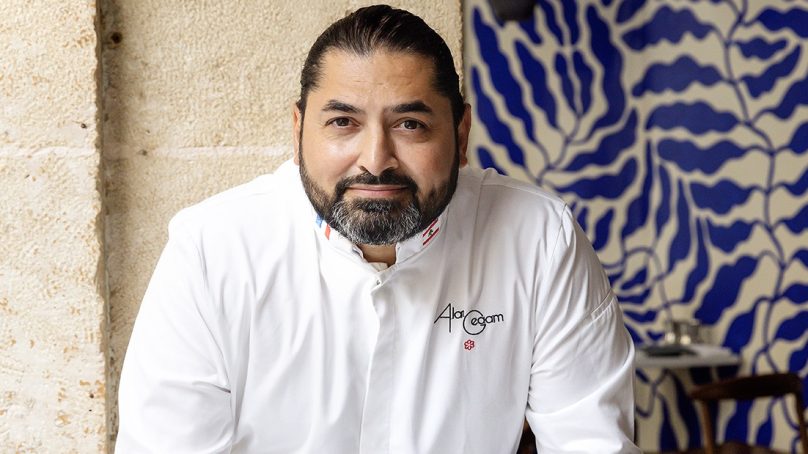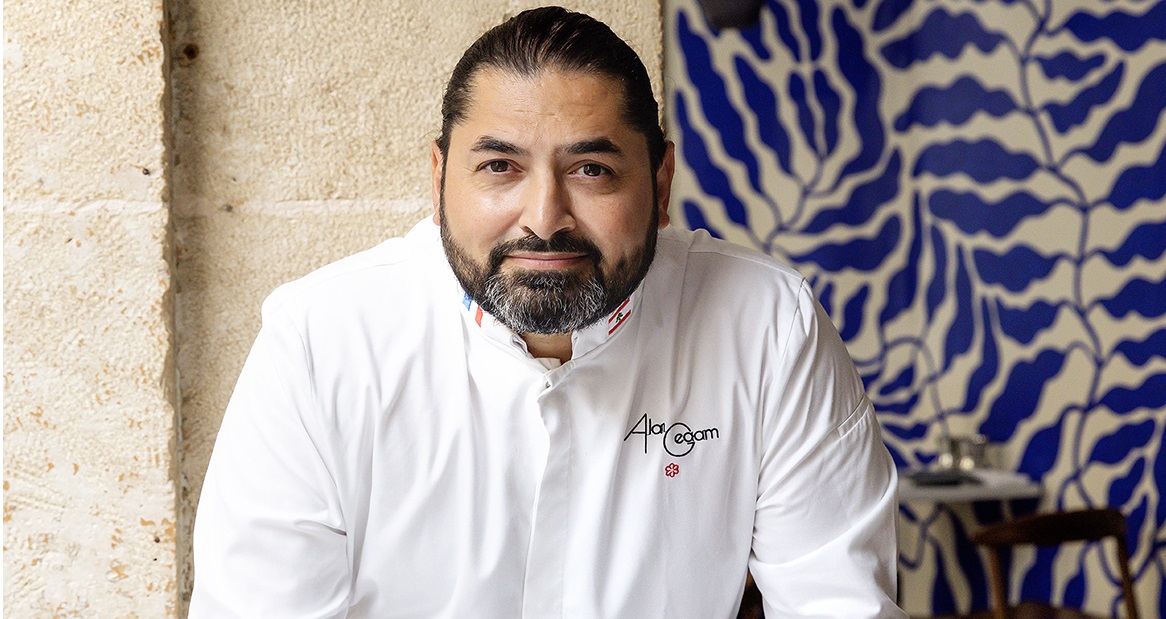Alan Geaam’s path to success is nothing short of exceptional. The talented and charismatic chef became a Lebanese Michelin star awardee just 10 months after opening his fourth restaurant. In this exclusive interview, we explore his passion for Lebanese food and his latest endeavors.
What can you tell us about your journey?
My journey in the culinary world started when I was just a child. I would spend hours in my mother’s kitchen, watching and learning from her. She instilled in me a deep love for cooking and a passion for sharing meals. During that period, I also discovered French gastronomy, watching esteemed chefs like Robuchon and Bocuse cook on TV. However, it required a tremendous amount of hard work to master Michelin-starred techniques without receiving traditional chef training. Nevertheless, I demonstrated resilience and determination, diligently mastering these techniques, ultimately finding my place in this profession and fulfilling my lifelong dream.
How do you view Lebanese cuisine and the way in which it contributes to the cultural exchange between Lebanon and France?
Lebanese cuisine is a treasure trove of balance and generosity, where each dish tells a story of sharing and conviviality. It brings vibrant flavors such as zaatar and sumac to French gastronomy, enriching our tables with fresh, spicy notes. In my creations, I like to marry these two cultures, combining French finesse with the diversity of Lebanese dishes. This creates a genuine culinary dialog, where each bite celebrates the coming together of two rich and complementary heritages.
What methods or strategies do you use to introduce and promote Lebanese dishes in France and how have the French reacted to Lebanese cuisine?
To introduce Lebanese cuisine to France, I use a subtle approach, incorporating emblematic ingredients into reinvented French dishes. Furthermore, I offer tasting menus. I allow guests to discover the richness of Lebanese authentic mezzes in my traditional Qasti restaurants. French people, who are curious and eager to explore new flavors, warmly welcome these dishes with enthusiasm and appreciation. Additionally, they particularly enjoy the freshness of the ingredients and the conviviality that this cuisine brings to the table. Ultimately, it’s a harmonious encounter between two gastronomies, both of which share a love of authenticity and culinary pleasures.
What challenges have you faced in promoting Lebanese food and how have you overcome them?
One of the main challenges in promoting Lebanese cuisine is balancing authenticity while adapting dishes to suit French tastes and expectations. Furthermore, some specific ingredients can be challenging to source in France, necessitating the use of local products. Additionally, I had to educate customers about the richness of Lebanese cuisine, often reduced to hummus or falafel. Nevertheless, Lebanese cuisine is ultimately well-received in France, despite the differences in flavors and ingredients commonly used. Indeed, both cuisines share a profound love for quality produce and a commitment to gastronomic authenticity, thus creating a natural harmony.
What makes Qasti Lausanne, your new restaurant, special?
Qasti Lausanne is the latest addition to the Qasti family, which includes all my traditional Lebanese restaurants. I started working with Swiss partners two years ago and fell completely in love with this wonderful country. I really wanted to be able to develop my own projects there and I’m delighted to say that this is now the case. Qasti Lausanne follows the same model as its Parisian cousins: beautiful tables of traditional and authentic mezzes to share with family and friends. The watchword at Qasti is always conviviality!
Do you have any projects in the pipeline?
Of course, I always have lots of ideas for new projects. As far as my restaurants are concerned, there’s the Auberge Nicolas Flamel, the oldest house in Paris, which we’re in the process of bringing back to the forefront, with a menu that perfectly reflects what made me fall in love with French gastronomy: noble, seasonal products and authentic, perfectly mastered recipes.
We also have several partnership projects under development, which should come to fruition in the next few months, with a lot of great things coming up.
















